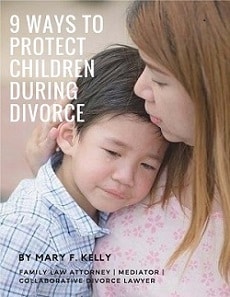Many couples marrying for the first time think the main reason to enter into a prenuptial agreement is to protect a family inheritance or one person’s wealth. It’s true that some parents insist the couple have a prenup to secure their son’s or daughter’s inheritance rights. However, prenups can serve multiple purposes in a couples’ financial arrangements.
What is a prenup?
When discussing a prenuptial agreement, the couple has to put all of their cards on the table, so to speak. They must fully disclose their assets, debts, and incomes. Then they discuss their finances: Is any property part of a family trust that has restrictions on who can inherit it? Does either fiance have significant debts or a stake in a business partnership? Does either have to pay maintenance (alimony) to an ex-spouse or have children from a prior marriage to support?
What does a prenup do?
Answering questions like these helps couples decide which assets and debts they will share as a married couple. For example, someone with a lot of debt can keep it from becoming an obligation they both have to pay off. A prenup can also specify that certain assets will go to your children when you die, if you have an asset that you want to make sure stays in the family, like a shared vacation home. Or if one person owns shares in a family business and wants to keep the ownership separate from marital property, a prenup can accomplish that.
Another reason for having a prenup is that, if the couple divorces, they have already made critical decisions about finance. This will keep painful negotiations during the divorce to a minimum and save on legal fees. In second marriages, a prenup can prevent battles between someone’s new spouse and children from a prior marriage, by defining which assets go to the spouse and which go to the children at the person’s death. If no provisions are made and the person didn’t make a will, by law the surviving spouse could inherit assets that the children thought they would receive.
It may sound strange for a couple getting married to think about how to divide their assets if they ever get divorced. In fact, it’s a good idea for all couples to talk about money before they marry. It’s even more important if one person earns much more than the other does or already has significant wealth. If the marriage were to end in divorce, how much maintenance (alimony) would the lower-earning spouse get? After ten years spent together, what’s a fair way to divide their assets? If one person were to stay home to raise children, losing an income and facing diminished earning potential for the future, how much maintenance should he or she get? The law provides formulas to make these calculations when a couple divorces, but figuring out all the details can be complicated, with many variables to consider.
Learn the law about money and marriage
If you think about the “what ifs” before you marry, you’ll learn important lessons about money and marriage. For instance, the law distinguishes separate property from marital property once you are married. Separate property is money or property one of you owns before the marriage; this could be a 401(k), a savings or investment account, or an apartment you own. However, separate property can become marital property – owned by both of you – under certain circumstances.
Say you get married, then you and your spouse buy a home, with the help of a $100,000 down payment your parents contribute. Later, if you divorce, you may claim the $100,000 as separate property that should be returned to you. But without a prenup or other written agreement, the law assumes that you meant to commingle it with your marital assets, transforming it into marital property. The reverse can also happen: if you invest $50,000 of marital income (earned after you got married) in your spouse’s family business, it could be deemed your spouse’s separate property, unless there is a written agreement saying otherwise.
Something else to consider when you negotiate a prenup is that circumstances may change how you think about money. Often, both people in a couple have jobs and feel that they could be self-sufficient if for some reason they divorced. After all, you may think, you supported yourself before you tied the knot. But money matters generally become more complex and intertwined during years of marriage. What if you have a sick or disabled child and one parent stops working to be a full-time caregiver? Or you lose your job and have to take a lower-paying one that would not pay your bills on its own? One day, your family finances may work when you’re living under one roof with children, then suddenly you have to pay for two homes because you’re getting divorced. Setting up basic guidelines you can agree on in a prenup will help you plan your financial future intentionally rather than just letting it happen.
© 2024 Mary F. Kelly




